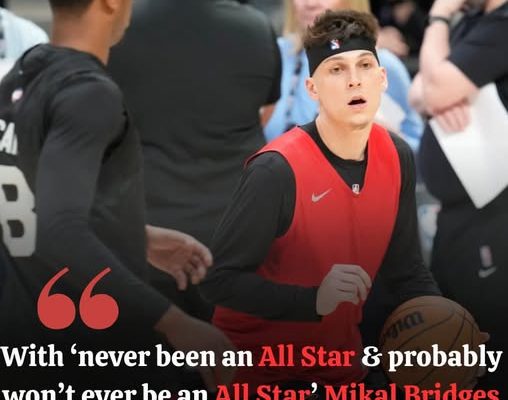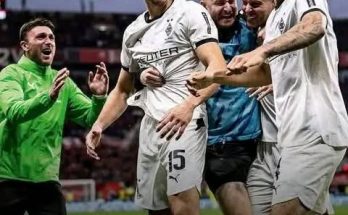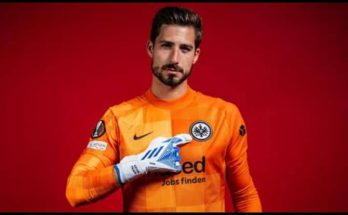The Miami Heat have long been known for their ability to build a competitive roster while navigating the often volatile waters of NBA contract negotiations, but the latest whispers surrounding Tyler Herro could signal an offseason storyline that tests the team’s patience and financial boundaries. According to a well-connected insider, there is a growing belief that Herro will seek more than \$40 million per year in his next deal, a number that would put him in the elite financial tier of NBA guards, alongside names like Damian Lillard, Devin Booker, and Donovan Mitchell. This revelation has ignited a storm of speculation in Miami and across the league, not only about whether Herro’s play justifies such a payday but also about what such a move would mean for the Heat’s future roster construction.
Tyler Herro’s career arc has been one of both promise and complexity. Drafted by the Heat in 2019, he quickly made a name for himself during his rookie season, particularly in the NBA Bubble where his scoring outbursts and fearlessness on the big stage helped Miami reach the Finals. Since then, Herro has evolved into one of the league’s most consistent young scorers, capable of both creating his own shot and providing reliable spacing for Miami’s offense. His scoring averages have steadily climbed, and his efficiency has held up despite an expanded role and increased defensive attention from opponents. Yet, despite his on-court production, the idea of him commanding \$40 million or more per season raises eyebrows, in part because that type of salary puts a player in a category where they are expected to be a franchise cornerstone and perennial All-Star.
The market for elite guards has shifted dramatically in recent years. With the salary cap continuing to rise and the NBA’s new television deal promising even more revenue in the coming seasons, top-tier players are signing contracts that would have seemed astronomical just five years ago. Players like Jaylen Brown and Anthony Edwards have signed massive deals that reflect both their talent and the league’s economic boom. Herro, still just 25 and entering the prime of his career, can reasonably argue that he deserves to be part of this group. He has averaged over 20 points per game in consecutive seasons, improved his playmaking, and shown the ability to handle primary ball-handling duties when needed. In an era where offensive versatility is prized, his skill set is a valuable commodity.
However, the Heat’s front office must weigh that value against their broader roster-building strategy. Miami has long been built around the leadership and two-way dominance of Jimmy Butler, the rugged interior presence of Bam Adebayo, and a cast of role players who buy into Erik Spoelstra’s demanding system. Giving Herro a \$40 million-plus annual salary would significantly limit the Heat’s flexibility to add or retain other key contributors. The NBA’s new collective bargaining agreement has placed harsher penalties on teams that exceed certain spending thresholds, making it more difficult to simply pay luxury tax and maintain depth. This means that a decision to meet Herro’s reported asking price could lock Miami into a very expensive, and possibly rigid, core for years to come.
Herro’s value to Miami is not solely measured in points per game. He has become one of the faces of the franchise, a player whose swagger and competitive spirit align with the Heat culture. Fans remember his iconic moments in the playoffs, his willingness to take big shots, and his confidence that never seems to waver. But there have also been challenges. Injuries have cut into his availability at crucial times, including a broken hand that sidelined him during a significant portion of the 2023 playoffs. Miami’s surprising run to the NBA Finals that year, largely without Herro, created a complicated narrative—one in which the team’s success without him led some to question whether he was truly indispensable or simply a luxury piece in Spoelstra’s system.
Negotiations in these situations often come down to leverage. Herro’s camp will point to his statistical production, his age, and the rising market for high-level guards. They will argue that on another team, he could easily be the number one or number two scoring option, and that the Heat’s system, while disciplined, has never fully unleashed his offensive potential. They will note that Miami has invested heavily in veteran players like Butler, who is entering his mid-30s, and that if the Heat want to remain competitive long-term, locking in a young star like Herro is essential.
The Heat’s front office, on the other hand, will have their own arguments. They could point to the team’s performance in Herro’s absence, the defensive limitations that sometimes make him a target in playoff matchups, and the financial constraints of committing such a large portion of the salary cap to a player who is not a consistent All-NBA performer. They might also remind Herro’s camp that Miami has a track record of discovering and developing undervalued players who thrive in their system, meaning that while Herro is important, he may not be irreplaceable.
From a basketball standpoint, the question becomes whether Herro can make the leap from very good player to elite franchise cornerstone in the coming years. His offensive skill set is undeniable—he can score from all three levels, create off the dribble, and make plays for teammates. His confidence is a weapon, as he is unafraid to take big shots even after a cold stretch. But to justify \$40 million or more annually, he will likely need to improve his defensive consistency, enhance his ability to run an offense in high-pressure playoff situations, and show that he can be the driving force in winning at the highest levels.
One complicating factor is the state of the Heat’s current roster and competitive timeline. Jimmy Butler has been the team’s emotional leader and playoff engine, but at 35, the window for him to play at an elite level is narrowing. Bam Adebayo remains one of the league’s most versatile big men, but his offensive game, while improving, is still not on par with the league’s elite scorers. This has left Miami often searching for a third star or a primary scoring option when Butler is out or limited. Herro could fill that role, but doing so consistently against the best defenses in the league is the challenge. If Miami believes he can make that jump, then paying him like a top-tier guard might make sense. If they have doubts, then they could face a tough decision about either negotiating a lower figure or exploring trade options before he reaches unrestricted free agency.
The potential ripple effects of this contract situation extend beyond Miami. Other teams around the league will be watching closely, particularly those in need of scoring and shooting in the backcourt. If negotiations stall and it becomes clear that the Heat are unwilling to meet Herro’s asking price, rival general managers could begin positioning themselves to make offers via trade. Herro’s age, contract situation, and skill set make him an attractive target for teams looking to accelerate a rebuild or add a high-level scorer to an existing core. That outside interest could, in turn, give Herro and his representatives more leverage in talks with Miami.
Herro’s relationship with the Heat organization and his teammates will also play a role in how this develops. By all accounts, he is well-liked in the locker room, competitive in practice, and committed to improving his game. But money matters can strain even the healthiest of team dynamics, especially if negotiations drag into the season. The Heat have prided themselves on keeping internal matters in-house, but in today’s media landscape, leaks and speculation are almost inevitable. The longer the situation remains unresolved, the more it could become a distraction for a team trying to compete in the tough Eastern Conference.
From a fan perspective, the idea of paying Herro over \$40 million a year will spark passionate debate. Supporters will argue that this is simply the going rate for young, proven scorers in today’s NBA and that losing Herro would leave a major void in Miami’s offense. Critics will counter that his production, while solid, has not yet reached the level of the league’s truly elite guards and that such a contract could hamstring the team’s flexibility for years. In a salary-cap league, big decisions like this inevitably force a weighing of short-term needs against long-term strategy.
Ultimately, the Heat are facing a classic modern NBA dilemma: pay a young star-level player at the top of the market to keep him happy and in-house, or risk losing him and potentially taking a step back in the standings. With the Eastern Conference becoming increasingly competitive—featuring powerhouses like the Boston Celtics, Milwaukee Bucks, and Philadelphia 76ers—the margin for error is razor-thin. Miami’s brain trust will have to decide if betting big on Herro is the right move for sustaining their culture and competing for championships in the post-Butler era.
For Herro himself, this is both a business decision and a personal milestone. The opportunity to secure a massive contract is the culmination of years of work, sacrifice, and proving doubters wrong. But it also comes with the expectation that he will elevate his game to match the investment. If he gets the deal he’s reportedly seeking, every playoff performance, every defensive lapse, and every clutch moment will be magnified under the weight of that salary.
In the end, the Heat and Tyler Herro may find a middle ground that reflects both his value and the team’s financial reality. But as of now, with the belief growing that he will seek more than \$40 million per year, the stage is set for one of the most closely watched contract negotiations of the coming offseason. For a franchise that has built its reputation on toughness, adaptability, and smart roster moves, how they handle this could be as defining as any trade or free agent signing they make in the years ahead. The stakes are high, the clock is ticking, and both sides know that the decision will shape not just Tyler Herro’s future, but the trajectory of the Miami Heat for seasons to come.



